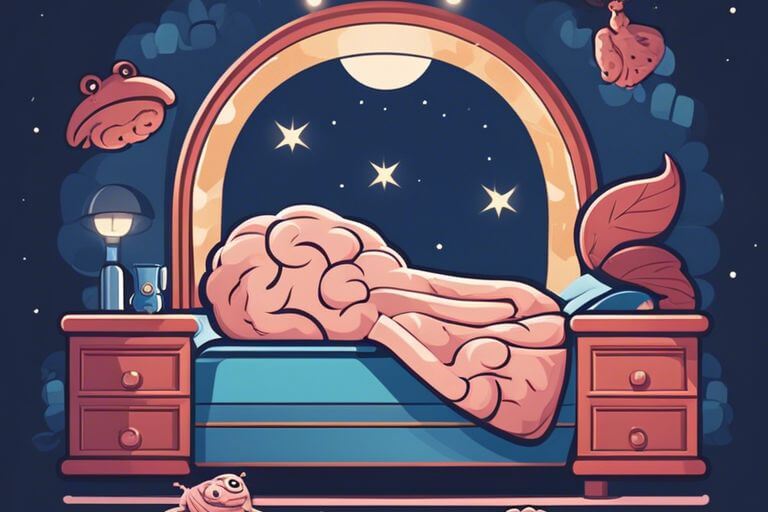Insomnia Is Just in Your Head – Dispelling Psychological Sleep Disorder Myths
You may have heard the misconception that insomnia is simply a matter of mind over matter, dismissing it as a psychological sleep disorder. However, this belief can be not only misleading but also dangerous. Insomnia is a legitimate sleep disorder that can have serious consequences on your health and well-being. In this blog post, we aim to dispel the myths surrounding insomnia and shed light on the reality of this common yet often misunderstood condition.
Understanding Insomnia
Definition and Symptoms
With insomnia affecting millions of people worldwide, it’s crucial to understand this common sleep disorder. Insomnia is characterized by difficulties falling asleep, staying asleep, or waking up too early and not being able to fall back asleep. Symptoms may include fatigue, irritability, difficulty concentrating, and daytime sleepiness.
Common Misconceptions
To dispel the myth that insomnia is just a bad habit or a lack of willpower, it’s crucial to address common misconceptions surrounding the disorder. One prevailing misconception is that individuals with insomnia simply need to “relax” or “try harder” to fall asleep, dismissing the underlying psychological and physiological factors contributing to their sleep difficulties.
Another misconception is that insomnia is not a serious health concern. Insomnia is more than just a few sleepless nights; it can have serious repercussions on one’s mental and physical health. Untreated insomnia can increase the risk of developing chronic conditions such as depression, anxiety, hypertension, and diabetes. It’s vital to recognize the importance of seeking proper diagnosis and treatment for insomnia to improve overall well-being and quality of life.
Psychological Factors of Insomnia
One common misconception about insomnia is that it is purely a physical ailment, but in reality, psychological factors play a significant role in the development and maintenance of sleep disorders. Understanding the psychological aspects of insomnia is crucial in addressing the root causes of sleep disturbances and finding effective treatment options.
Stress and Anxiety
For many individuals, stress and anxiety are major contributors to chronic insomnia. The inability to quiet the mind and relax can lead to difficulty falling asleep and staying asleep. This constant state of hyperarousal can create a cycle of poor sleep, increased stress, and worsening insomnia. Addressing the underlying stressors and learning coping mechanisms are crucial in managing insomnia related to stress and anxiety.
Cognitive Processes
One important aspect of insomnia is the role of cognitive processes in perpetuating sleep difficulties. Negative thought patterns, racing thoughts, and unrealistic expectations about sleep can all contribute to the development of chronic insomnia. Understanding how cognitive processes impact sleep can help individuals challenge and change these patterns, leading to better sleep quality. Cognitive-behavioral therapy for insomnia (CBT-I) is a highly effective treatment that targets these cognitive processes to improve sleep outcomes.
The Myth of “It’s All in Your Head”
Biological and Environmental Influences
To address the misconception that insomnia is solely a psychological issue, it is important to consider the role of biological and environmental influences. Any disturbances in your body’s natural sleep-wake cycle, such as irregular work schedules, jet lag, or medical conditions like sleep apnea, can significantly impact your ability to get a good night’s rest.
The Role of Mental Health
While biological and environmental factors play a crucial role in sleep disturbances, it is vital to recognize the significant impact of mental health on insomnia. Conditions like anxiety, depression, and stress can disrupt your ability to relax and fall asleep, leading to chronic sleep issues.
Treating Insomnia
For those struggling with insomnia, it is important to explore various treatment options to improve the quality of sleep and overall well-being. There are several approaches to treating insomnia, each with its unique benefits and considerations.
Cognitive-Behavioral Therapy for Insomnia (CBT-I)
Any individual dealing with insomnia can benefit greatly from Cognitive-Behavioral Therapy for Insomnia (CBT-I). This structured program addresses the thoughts and behaviors that may be contributing to sleep difficulties. By identifying and changing negative sleep patterns, individuals can develop healthier sleep habits and improve the quality of their rest.
Medication and Alternative Treatments
Insomnia can also be managed with medications and alternative treatments. This approach may involve the use of prescription sleeping pills for short-term relief, but it is crucial to be aware of the potential side effects and risks of dependency. Alternatively, some individuals find relief through natural remedies such as herbal supplements, relaxation techniques, and acupuncture.
This comprehensive approach ensures that individuals struggling with insomnia have a range of options to explore and find the most suitable treatment for their specific needs. It is important to consult with a healthcare provider to determine the most appropriate course of action and ensure a safe and effective treatment plan.
Conclusion
Taking this into account, it is crucial to dispel the myths surrounding psychological sleep disorders such as insomnia. Acknowledging that insomnia is not just “in your head” but can have complex underlying causes is the first step in finding effective treatment solutions. By understanding the intersection between psychological factors and sleep disturbances, individuals can seek the help they need to improve their sleep quality and overall well-being. It is important to approach sleep disorders with a holistic perspective, recognizing the multifaceted nature of these conditions and the diverse treatment options available.

